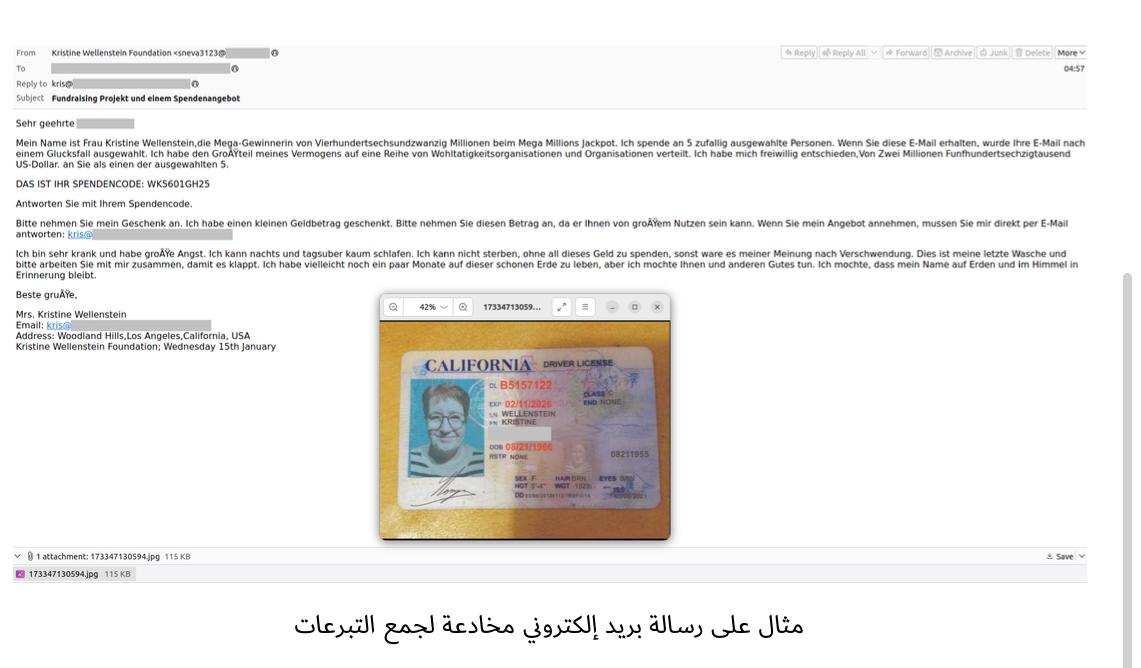In 2024, Kaspersky researchers detected over 414,000 ‘Nigerian’ email scams. These emails relied on messages that lured victims with enticing financial offers manipulating them into email exchanges which would ultimately be used to defraud them. The latest scams related to this method include romantic schemes requesting reimbursement for alleged travel expenses, fraudsters posing as wealthy individuals seeking business investments, and even scammers claiming to represent the Illuminati, a secret society dating back to the Enlightenment era.
‘Nigerian’ style scams are a type of advance fee scam in which fraudsters promise victims large sums of money, lucrative opportunities, or exclusive benefits but require an upfront payment — often disguised as processing fees, legal costs, or travel expenses — before ultimately disappearing with the money. The original ‘Nigerian’ scam emails were sent under the names of influential and wealthy individuals from Nigeria, which is how the scam got its name. Over time, the themes of these scam emails evolved, with cybercriminals exploiting current events and popular trends to capture their targets’ interest.
The iterations of advance fee scams discovered by Kaspersky in 2024 included both common scam examples (messages from allegedly unwell wealthy individuals) and unusual tactics. Some scams were sophisticated: for instance, they could include offers of romantic friendship: the victim and the scammer would meet online and chat, but when the victim was ready to meet in person, their “partner” would tell them they required financial help as they couldn’t afford the ticket or visa. In a different scenario, the scammer would say they wanted to send an expensive gift to their partner, but ask the victim to cover the shipping costs as they couldn’t afford the postage.
An unusual example was a scam email allegedly sent on behalf of the secret society of the Illuminati, claiming they were ready to share their wealth and power if the recipient agreed to become part of their grand brotherhood by replying to the email.
Some of the scam cases that have been discovered referenced recent or current real-world events, such as the COVID-19 pandemic or Saudi Arabia’s possible BRICS membership, claiming the recipients were entitled to receiving funds because of these developments. Scammers also took advantage of the 2024 U.S. Presidential election, claiming that recipients were lucky to win millions of dollars from the Donald J. Trump Foundation.
In other cases, to make their emails more convincing, scammers attached photos of documents to their emails that supposedly confirmed the sender’s identity.


